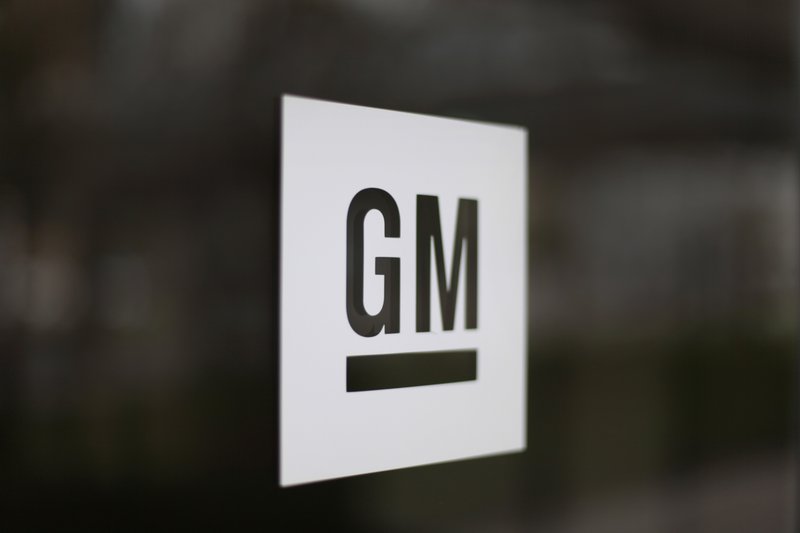The United Auto Workers union announced that its roughly 49,000 members at General Motors plants in the U.S. will go on strike Sunday night because contract negotiations with the automaker had broken down.
The decision came after about 200 plant-level union leaders voted unanimously in favor of a walkout during a meeting Sunday morning in Detroit.
“We stood up for General Motors when they needed us most. Now we are standing together in unity and solidarity for our members,” union Vice President Terry Dittes said in a statement.
It’s still possible that bargainers could return to the table and hammer out an agreement, but union spokesman Brian Rothenberg said at a news conference that it would be unlikely. He said it would be hard to believe that the bargainers could resolve so many issues before 11:59 p.m.
The announcement came hours after the union let its contract with GM expire Saturday night.
In a statement, GM said it offered improved wages, benefits and additional U.S. jobs.
“It is disappointing that the UAW leadership has chosen to strike at midnight tonight. We have negotiated in good faith and with a sense of urgency. Our goal remains to build a strong future for our employees and our business,” the company said.
Among the things GM offered was that it would start making new products at plants it currently plans to close in Detroit and Lordstown, Ohio, according to a person who was briefed on the negotiations. The person spoke to The Associated Press on the condition of anonymity because they weren’t authorized to disclose details of the proposal, which haven’t been made public.
GM offered to build a new all-electric pickup truck at the Detroit factory in Detroit is slated to close next year. The Lordstown plant, which already has stopped making cars, would make become a battery manufacturing plant and might produce electric vehicles for a company called Workhorse, the person said.
On Saturday, UAW Vice President Terry Dittes said in a letter to GM members that after months of bargaining, both the union and GM were far apart on issues such as wages, health care, temporary employees, job security and profit-sharing. The letter to members and another one to GM were aimed at turning up the pressure on GM negotiators.
“While we are fighting for better wages, affordable quality health care, and job security, GM refuses to put hard working Americans ahead of their record profits,” Dittes, the union’s chief bargainer with GM, said in a statement Saturday night.
A strike by 49,200 union workers would bring to a halt GM’s U.S. production, and would likely stop the company from making vehicles in Canada and Mexico as well. That would mean fewer vehicles for consumers to choose from on dealer lots, and it would make it impossible to build specially ordered cars and trucks.
The strike would be the union’s first since a two-day work stoppage at GM in 2007.
On Friday, union leaders extended contracts with Ford and Fiat Chrysler indefinitely, but the pact with General Motors was still set to expire Saturday night.
The union picked GM, which is more profitable than Ford and Fiat Chrysler, as the target company, meaning it’s the focus of bargaining and would be the first company to face a walkout. Picket line schedules already have been posted near the entrance to one local UAW office in Detroit.
Talks between the union and GM were tense from the start, largely because GM plans to close four U.S. factories, including the ones in Detroit and Lordstown, Ohio. The union has promised to fight the closures.
Here are the main areas of disagreement:
— GM is making big money, $8 billion last year alone, and workers want a bigger slice. The union wants annual pay raises to guard against an economic downturn, but the company wants to pay lump sums tied to earnings. Automakers don’t want higher fixed costs.
— The union also wants new products for the four factories GM wants to close. The factory plans have irked some workers, although most of those who were laid off will get jobs at other GM factories. GM currently has too much U.S. factory capacity.
— The companies want to close the labor cost gap with workers at plants run by foreign automakers. GM’s gap is the largest at $13 per hour, followed by Ford at $11 and Fiat Chrysler at $5, according to figures from the Center for Automotive Research. GM pays $63 per hour in wages and benefits compared with $50 at the foreign-owned factories.
— Union members have great health insurance plans but workers pay about 4% of the cost. Employees of large firms nationwide pay about 34%, according to the Kaiser Family Foundation. The companies would like to cut costs.
(AP)











